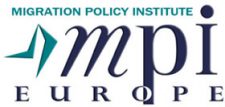WP12 – Policies and cost-sharing
Free movement is one of the most remarkable achievements of European integration. But it is a complex and delicate construction; built over a long period, at different speeds, with a diverse range of tools, and with many architects involved. Far from being implemented in a vacuum, free movement policy must be agreed by a complex set of stakeholders across the EU multi-level governance landscape – and translated into different national contexts with their own peculiar histories, institutions, socioeconomic conditions, and political objectives. So it is hardly surprising that intra-EU mobility has recently been the object of much discontent, with national politicians and publics accusing it of being unfair, imbalanced, and even a threat to national well-being.
This work package takes stock of the framework governing intra-EU mobility, and proposes ways to make it more equitable, fair and advantageous for all stakeholders involved – whether EU Member States, their populations, or mobile EU citizens. Starting from a detailed, critical mapping of the legislative and operational infrastructure of the free movement framework, the MPI Europe project team will identify gaps, asymmetries and grey areas in national-level interpretation and implementation, before developing concrete and viable suggestions for policy improvement.
The work package will consist of two phases. The first phase will involve desk research and semi-structured interviews to map the legislative framework of intra-EU mobility, and how it is put into practice. This mapping exercise will look not only at the level of EU legislation and policy, but also at how EU rules are transposed into national laws, and at the instruments put in place to ensure intra-EU mobility works effectively in day-to-day practice.
This mapping exercise will result in a ‘blueprint’ of intra-EU mobility, which will be drafted based on a review of EU Directives, soft law instruments and ECJ case law as, well as on interviews with EU officials. We will pay particular attention to rules governing access to particular services, such as healthcare, welfare benefits, unemployment benefits, education and skills development. MPI Europe will assess the blueprint for its coherence, clarity, and comprehensiveness of vision.
We will then analyse implementation at the national level by reviewing transposition studies and relevant jurisprudence (e.g. infringement procedures) as well as through interviews with national officials. For instance, different patterns of adoption of the EU framework between EU Member States may hint at real and perceived imbalances and expose underlying tensions.
To round out the picture, our research will examine the wide range of instruments established at the national level to improve access and delivery of services at the practical level, ranging from information materials and advisory services for different stakeholders (employers, employment services, social partners) to inspections and sanctions aimed at ensuring compliance. Interviews with frontline practitioners will offer further insights on how the blueprint of intra-EU mobility trickles down to the level of on-the-ground implementation.
In the second phase, the work package with adopt a more creative, forward-looking stance. Drawing on the results of the mapping and of the other work packages, MPI Europe will develop and outline possible pathways for policy reform, in close exchange with the other consortium partners. To make sure that these preliminary ideas correspond to real needs and are politically feasible, they will be tested in a roundtable of policymakers. The ultimate aim is to ensure transparent and effective support for free movement by correcting existing gaps and imbalances, e.g. by means of more equitable cost-sharing mechanisms.
Publications
Policy Analysis
Free Movement in the European Union: An Audit
Rethinking social security coordination: From tinkering to radical reform
EU citizenship and free movement: Troubled partners, or a mutually reinforcing relationship?

